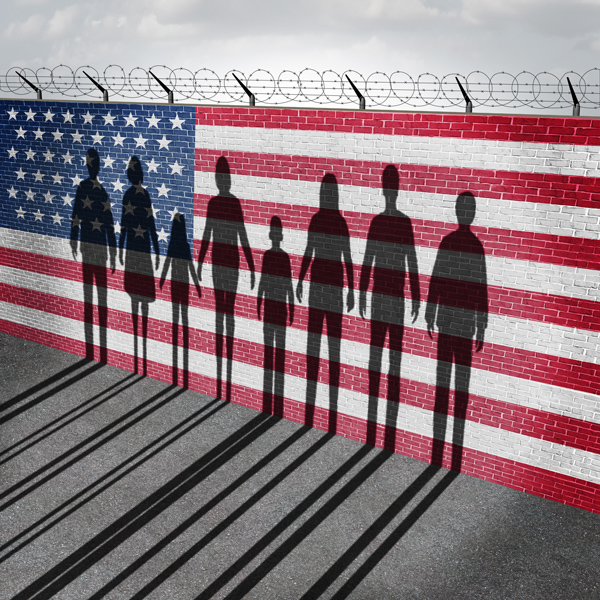ABA president calls for improvements to immigration system, conditions of detention

Shutterstock.com
After a weekend of violence and controversy at the Southern border, ABA President Bob Carlson issued a statement and a letter calling for improvements to the U.S. immigration system.
Carlson’s statement, dated Tuesday, makes express reference to escalating tensions at the border before calling for “a comprehensive, peaceful resolution to our nation’s immigration challenges.” Specifically, it asks Congress and the White House to devote more resources to the systems for handling asylum claims.
“Our immigration adjudication system is underfunded and undermanned,” Carlson wrote. “Nothing should be done to impede access to counsel or diminish due process of law for people seeking asylum.”
The ABA has frequently called for expanded access to counsel in immigration court, where immigrants are not provided with court-appointed lawyers and the resulting needs are not fully met by pro bono help. The ABA House of Delegates also passed a resolution reaffirming its support for asylum seekers and refugees, in 2017’s Resolution 10B, and calling for an end to the federal policy of separating parents and children with 2018’s Resolution 10C.

ABA President Bob Carlson
The statement came one day after Carlson submitted a letter to U.S. Immigration and Customs Enforcement, highlighting the ABA’s concern that ICE appears to be abandoning efforts to use the most protective detention standards in nondedicated facilities. Those are jails that house ICE detainees but are not dedicated exclusively to immigration detention, such as county jails that receive federal payments to house detainees. Those facilities are using an earlier version of the detention standards, which Carlson said are less protective of detainees. In addition, he said, it would be best if there was one standard across the entire detention system.
His letter also raises concern that only the ABA and three other organizations were asked for comment on the detention standards. A broader group might create better rules as well as create more community support for the end product, he noted.
Carlson’s letter also noted that there are “long-standing and serious” concerns about the conditions of immigration detention, as well as substantial barriers between detained immigrants and access to legal help. That’s why the ABA opposes detaining immigrants except in extraordinary circumstances, he wrote.
“The ABA instead supports the use of cost-effective, humane alternatives to detention, for individuals who would otherwise be detained, that are the least restrictive necessary to ensure appearance in court,” he said. “For those who are detained, it is essential to provide uniform and consistent standards to ensure that all facilities housing immigration detainees are safe and protect detainees’ statutory and constitutional rights.”
The letter noted that the ABA has historically weighed in on ICE’s detention standards, going back to the days before ICE was established and the former Immigration and Naturalization Service was in charge of the standards. As with this time, the ABA’s comments centered on immigrants’ access to legal information and communications and visits with attorneys.
The ABA’s direct work on immigration detention and immigrant rights includes the South Texas Pro Bono Asylum Representation Project in Harlingen, Texas, and the Immigration Justice Project in San Diego. Both are projects of the Commission on Immigration. Carlson noted that the ABA also maintains a legal help hotline for detained immigrants, which gets a significant number of complaints about conditions of detention.



